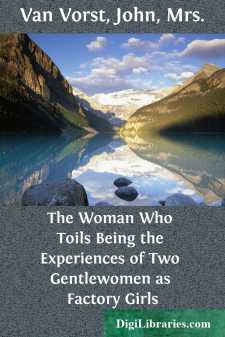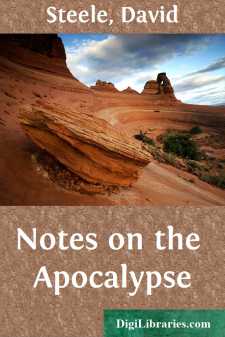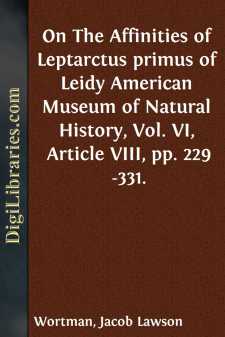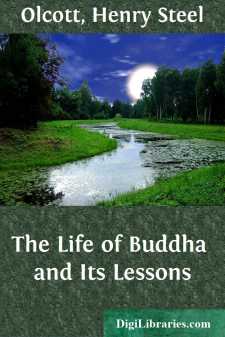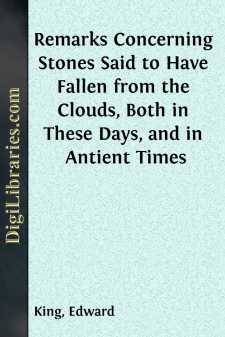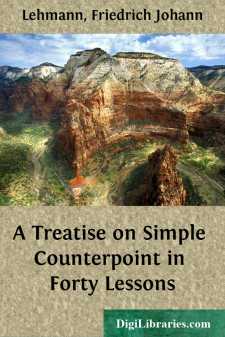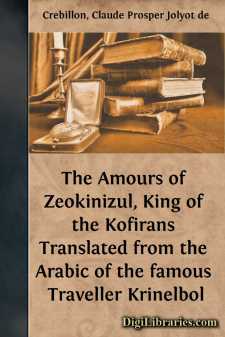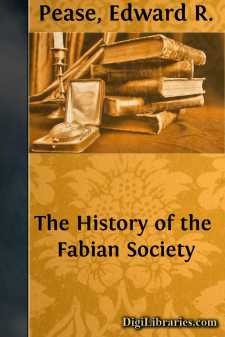Non-Classifiable
- Non-Classifiable 1768
Non-Classifiable Books
Sort by:
by:
John Van Vorst
CHAPTER IINTRODUCTORY Any journey into the world, any research in literature, any study of society, demonstrates the existence of two distinct classes designated as the rich and the poor, the fortunate and the unfortunate, the upper and the lower, the educated and the uneducated—and a further variety of opposing epithets. Few of us who belong to the former category have come into more than brief...
more...
by:
David Steele
CHAPTER I. 1. The Revelation of Jesus Christ, which God gave unto him, to show unto his servants things which must shortly come to pass; and he sent and signified it by his angel unto his servant John: 2. Who bare record of the word of God, and of the testimony of Jesus Christ, and of all things that he saw. 3. Blessed is he that readeth, and they that hear the words of this prophecy, and keep those...
more...
Genus AMŒBA Auct. The pseudopodia are lobose, sometimes absent, the body then progressing by a flowing movement; the body consists of ectoplasm and endoplasm, the latter being granular and internal, the former hyaline and external. There is always one nucleus and one vacuole, but both may be more numerous. Reproduction takes place by division or by spore-formation. Fresh-water and marine. Fig. 1.—...
more...
Up to the present time but very little has been known of the existence of the peculiarly American family Procyonidæ in any deposits older than the very latest Quaternary. Leidy has described and figured an isolated last upper tooth, from the Loup Fork deposits of Nebraska, under the name of Leptarctus primus, which has been referred to this family. The Museum Expedition of last year into this region...
more...
The thoughtful student, in scanning the religious history of the race, has one fact continually forced upon his notice, viz., that there is an invariable tendency to deify whomsoever shows himself superior to the weakness of our common humanity. Look where we will, we find the saint-like man exalted into a divine personage and worshipped for a god. Though perhaps misunderstood, reviled and even...
more...
by:
Edward King
An Attempt to account for the Production of a Shower of Stones, that fell in Tuscany, on the 16th of June, 1794; and to shew that there are Traces of similar Events having taken place, in the highest Ages of Antiquity. In the course of which Detail is also inserted, an Account of an extraordinary Hail-stone, that fell, with many others, in Cornwall, on the 20th of October, 1791. Having received this...
more...
SIMPLE COUNTERPOINT LESSON I Counterpoint is the art of combining two or more melodies of equal melodic individuality. In simple counterpoint all parts must remain in the same relative position to one another. The Cantus Firmus is a given melodic phrase that is to receive contrapuntal treatment, that is, one or more parts are to be added above or below it. The Counterpoint is any part other than the...
more...
Kofirans. fter all the Labours and Attention of our best Academicians to form just Plans, and draw complete Maps of the whole Terraqueous Globe, there are many large Empires and powerful Nations, which their Enquiries have not reached; so that they are not only ignorant of their Position, but even of their Existence. Of this Number are the vast Dominions of the King of the Kofirans, of which hitherto...
more...
by:
Edward R. Pease
Chapter I The Sources of Fabian Socialism The ideas of the early eighties—The epoch of Evolution—Sources of Fabian ideas—Positivism—Henry George—John Stuart Mill—Robert Owen—Karl Marx—The Democratic Federation—"The Christian Socialist"—Thomas Davidson. "Britain as a whole never was more tranquil and happy," said the "Spectator," then the organ of sedate...
more...
by:
Carl R. Maag
FACT SHEET Defense Nuclear AgencyPublic Affairs OfficeWashington, D C. 20305 Subject: Project TRINITY Project TRINITY, conducted by the Manhattan Engineer District (MED), was designed to test and assess the effects of a nuclear weapon. The TRINITY nuclear device was detonated on a 100-foot tower on the Alamogordo Bombing Range in south-central New Mexico at 0530 hours on 16 July 1945. The nuclear yield...
more...


